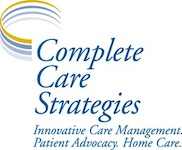There comes a profound moment in many adult children’s lives when the natural order seems to shift beneath their feet. The parents who once bandaged scraped knees, offered sage advice, and stood as pillars of strength begin to need support themselves. This role reversal represents one of life’s most challenging transitions—emotionally, logistically, and spiritually.
The Emotional Landscape of Caregiving
The journey often begins subtly. Perhaps you notice your mother struggling to recall recent conversations or your father’s hesitation to drive at night. These small moments can trigger a cascade of emotions:
- Grief for the gradual loss of the parent you’ve always known
- Anxiety about making the right decisions for their care
- Guilt over not being able to do more or be present more often
- Exhaustion from balancing caregiving with your own life responsibilities
Many adult children describe feeling unprepared- as if they’ve been thrust into a role with no training and impossibly high stakes. This sentiment is completely normal and shared by millions of caregivers across the country.
The Practical Challenges
Beyond the emotional complexity lies a landscape of practical hurdles:
Navigating healthcare systems that seem designed to confuse rather than clarify. Medical appointments, insurance questions, medication management—each represents its own learning curve.
Making living arrangements that balance safety with dignity. When is it time to consider additional support at home? What about assisted living? These questions rarely have simple answers.
Managing financial matters from everyday expenses to long-term care planning to ensuring that a scam does not impact them. Many adult children find themselves unprepared for the economic realities of aging.
Coordinating care among siblings, other family members, and professional caregivers, often while navigating complex family dynamics.
Finding Support in the Journey
At Complete Care Strategies, we’ve guided countless families through this territory. What we’ve learned is that while each family’s situation is unique, no one should navigate this path alone. Here are just some of the ways we can support you and your loved ones during thid time.
The most resilient caregivers are those who:
- Acknowledge their limitations. Superhuman efforts aren’t sustainable—knowing when to seek help is a strength, not a failure.
- Build a diverse support network. This includes not just family and friends, but professionals who bring specialized expertise.
- Prioritize self-care. The airline safety rule applies here: secure your own oxygen mask before helping others.
- Plan proactively when possible. Having conversations about preferences, values, and wishes before a crisis hits can transform the caregiving journey.
How Professional Support Makes a Difference
Professional Aging Life Care Managers bring both expertise and objectivity to complex situations. They can:
- Assess needs with a trained eye, identifying risks and opportunities family members might miss
- Navigate healthcare and social service systems with insider knowledge
- Coordinate communication among doctors, facilities, and family members
- Provide emotional support and guidance during difficult decisions
- Offer a continuum of care that evolves as needs change
Looking Forward
The journey of caring for aging parents, while challenging, also offers unexpected gifts—moments of profound connection, opportunities to express gratitude, and the chance to model compassionate care for the next generation.
At Complete Care Strategies, we believe that with the right support, this chapter can be navigated with grace and even moments of joy amidst the challenges. We stand ready to join you—not just during crises but as thoughtful planners and steady companions throughout the journey.
Because the parents who once carried you deserve care delivered with love—and so do you.
About the Author
As CEO of Complete Care Strategies, Rebecca Roskey-Brunner leverages over 20 years of experience as a Registered Nurse and Certified Care Manager to serve clients with special needs, the medically complex, and older adults facing health challenges to improve their quality of life. As an Aging Life Care Professional, Rebecca brings deep expertise in individualized care planning, dementia care, care coordination, and crisis prevention for vulnerable seniors.

